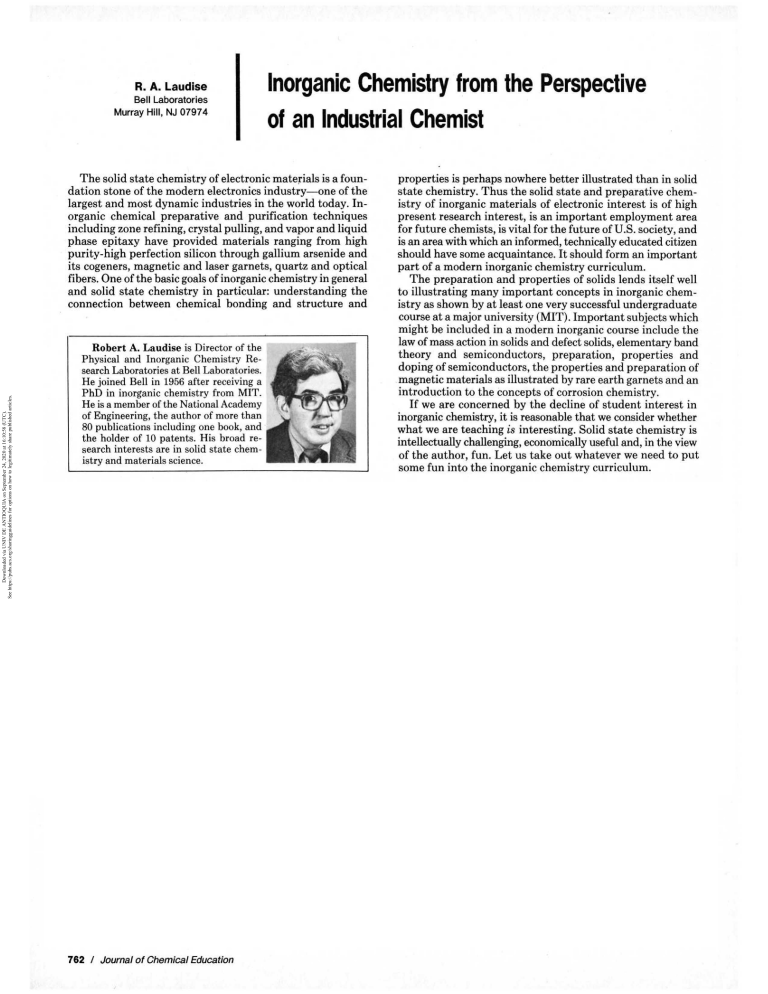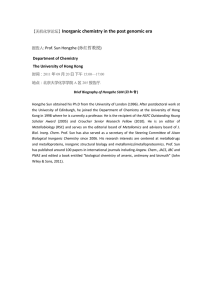
R. A. Laudise Bel! Laboratories Murray Hill, NJ 07974 Inorganic Chemistry from the Perspective of an Industrial Chemist The solid state chemistry of electronic materials is a foundation stone of the modern electronics industry—one of the largest and most dynamic industries in the world today. Inorganic chemical preparative and purification techniques including zone refining, crystal pulling, and vapor and liquid phase epitaxy have provided materials ranging from high purity-high perfection silicon through gallium arsenide and its cogeners, magnetic and laser garnets, quartz and optical fibers. One of the basic goals of inorganic chemistry in general and solid state chemistry in particular: understanding the connection between chemical bonding and structure and Downloaded via UNIV DE ANTIOQUIA on September 24, 2020 at 16:10:58 (UTC). See https://pubs.acs.org/sharingguidelines for options on how to legitimately share published articles. Robert A. Laudise is Director of the Physical and Inorganic Chemistry Research Laboratories at Bell Laboratories. He joined Bell in 1956 after receiving a PhD tn inorganic chemistry from MIT. He is a member of the National Academy of Engineering, the author of more than 80 publications including one book, and the holder of 10 patents. His broad research interests are in solid state chemistry and materials science. 762 / Journal of Chemical Education properties is perhaps nowhere better illustrated than in solid state chemistry. Thus the solid state and preparative chemistry of inorganic materials of electronic interest is of high present research interest, is an important employment area for future chemists, is vital for the future of U.S. society, and is an area with which an informed, technically educated citizen should have some acquaintance. It should form an important part of a modern inorganic chemistry curriculum. The preparation and properties of solids lends itself well to illustrating many important concepts in inorganic chemistry as shown by at least one very successful undergraduate course at a major university (MIT). Important subjects which might be included in a modern inorganic course include the law of mass action in solids and defect solids, elementary band theory and semiconductors, preparation, properties and doping of semiconductors, the properties and preparation of magnetic materials as illustrated by rare earth garnets and an introduction to the concepts of corrosion chemistry. If we are concerned by the decline of student interest in inorganic chemistry, it is reasonable that we consider whether what we are teaching is interesting. Solid state chemistry is intellectually challenging, economically useful and, in the view of the author, fun. Let us take out whatever we need to put some fun into the inorganic chemistry curriculum.

